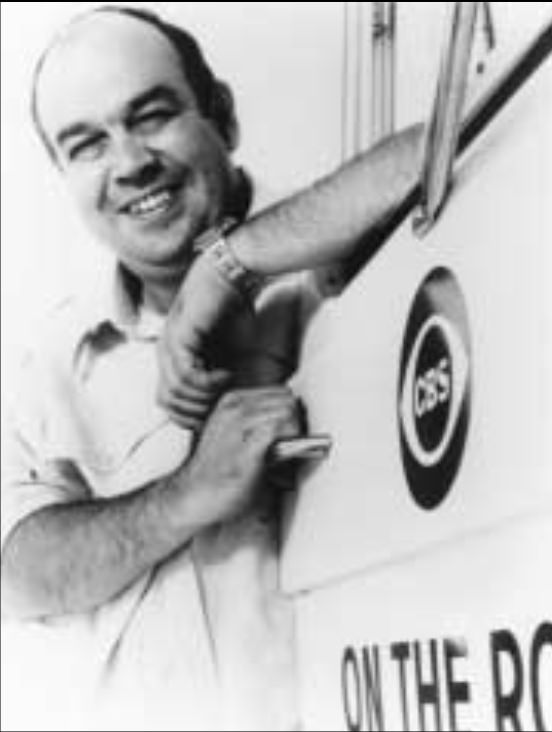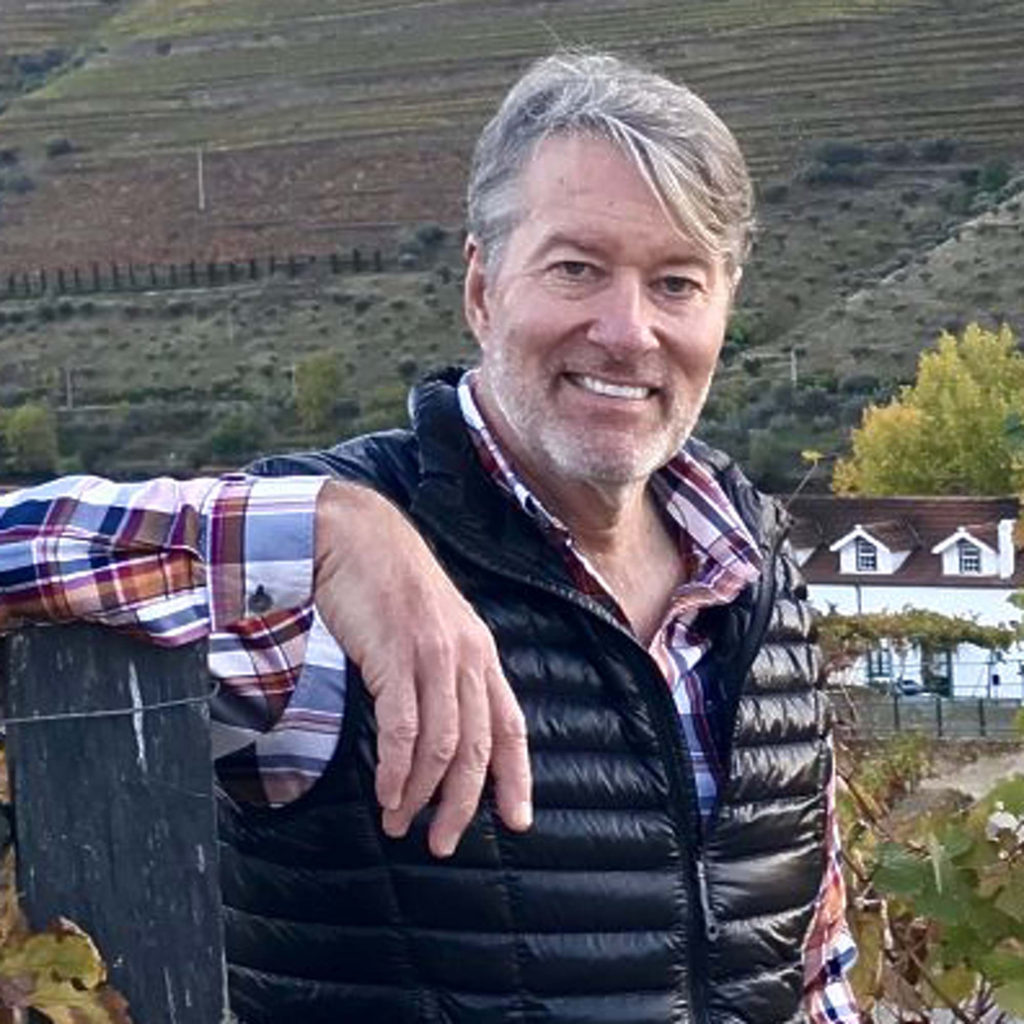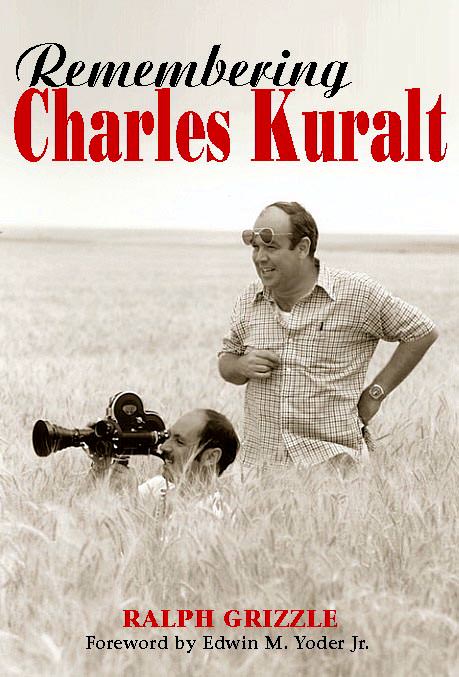
If you are reading these words, odds are that you know the name Charles Kuralt. Perhaps you were a fan of his books or his television shows, which spanned four decades on CBS. Maybe you were mesmerized by his rich, mahogany voice or his uncanny ability to weave stories from what others in his profession had failed to notice.
If you don’t know the name Charles Kuralt, stick around; you’re in for a treat. Seldom has the world seen such a “wandering minstrel,” who in 1996 was inducted into the Television Academy’s Hall of Fame “for his unwavering quest for the positive, the optimistic, and the essential goodness of humanity, and for his sincerity and warmth in creating pockets of serenity and sanity in a jumbled and maddening world.”
Throughout his career, Kuralt’s words were reassuring; his presence, comforting. He saw the best of who we were. It seemed at the time he was reporting that the country was unraveling at its seams. The United States had narrowly avoided conflict with Russia during the 1962 Cuban Missile Crisis. Presidents and leaders were assassinated: John F. Kennedy in 1963, Bobby Kennedy and Martin Luther King Jr. in 1968. Activists were being murdered. The Civil Rights movement saw more than 40 people killed during the movement. In 1970, the Ohio National Guard killed four Kent State students and wounded nine others who were protesting U.S. engagement in the Vietnam War. Amid the chaos, Kuralt found a quieter America on the backroads of our country.
“The country that I have found does not bear much resemblance to the one we read about on the front pages of newspapers or hear about on the evening news,” Kuralt told me during an interview in 1994. “The country that I found presents cups of coffee and slices of apple pie and people who always want you to stay longer than you have time to.”
Kuralt’s “On The Road” segments punctuated the daily barrage of riots, wars and demonstrations on the nightly news. “Two-minute cease-fires,” Time magazine called them.
Remembering Charles Kuralt, page 150
His more than 600 episodes of “On the Road,” filed from every state in America, gave us stories of hope and of unheralded heroes. In 1978, “On The Road” was awarded an Emmy for “Outstanding Achievement In Broadcast Journalism.”
In “One For The Road With Charles Kuralt and Morley Safer,” Safer said to Kuralt, “You call them heroes. Why?” Safer was referring to the people who Kuralt discovered for his “On The Road” segments. “They keep the spirit of the country alive,” Kuralt responded.
Indeed.
Kuralt showed our heroes to be people living in our own towns, perhaps just next door, like the retired North Carolina minister who spent his golden years repairing bicycles for the poor black kids in his community, or the Mississippi sharecropper who managed to send eight children to college despite all odds. Kuralt presented us with a refreshing definition of heroes – just ordinary people doing extraordinary things.
Anybody could have done those stories and probably done them pretty well. But to copy what he was doing, that was just style. To understand an artist you have to look into his heart, and that’s where those stories came from. And that’s why people simply could not get a grip on them quite the way Charles did. They didn’t have in their hearts quite what he did, the depth of feeling for that story, for that subject. – Wallace Kuralt, Brother
Remembering Charles Kuralt, page 204
Visiting the hamlets along America’s back roads gave Kuralt a great deal to be reassured about. In return, he reassured us. Through him, we became acquainted with Americans who were “decent and compassionate and unsullied by arrogance or hostility toward other people” as Kuralt described them. They were driven not by “motives of greed” or “delusions of superiority,” but by genuine concern for their communities and their country. Their only motives were to help make America a better place to live. “It’s what we used to call ‘patriotism,’ before that became such an old-fashioned word,” Kuralt said.
One of Kuralt’s people was Montana native Gordon Bushnell. “Mr. Bushnell always thought there ought to be a straight highway from Duluth to Fargo, and the state would not build it,” Kuralt told me. “So he decided that he was just going to have to build it himself.”
All alone, with a No. 2 shovel, an old wheelbarrow and an ancient John Deere tractor, Bushnell began negotiating with people for the right to build a road across their land. “When we met him, he had finished 11 miles of road, had 180 miles to go – of course, he was 78 years old at the time,” Kuralt recalled with a laugh. “But I loved him, and he just pressed on, because he knew it was the right thing to do.”
Despite the cynicism of the time, Kuralt believed Americans had an inherent sense of the right thing to do, and he loved them for it. Kuralt’s America was one of good and decent people.
Are we the same America today? I write these words following the January 6, 2021 attack on our nation’s capital. Are only a handful of people hostile, while the majority of Americans are like those Kuralt found late in the last century?
He told us then that maybe, just maybe, we were all better off than we thought we were. In 1993, Kuralt sat on an airplane next to a college graduate, listening to him complain about job prospects. The new grad believed it must be the worst time in history to be looking for a job. Kuralt silently recalled how his father, fresh out of college in the 1930s, set out to look for a job, and after six months of searching, found one: creosoting telephone poles in eastern North Carolina. “I didn’t say anything to the young graduate,” Kuralt said, “but I thought, Didn’t they teach you any history in that great university of yours?”
Kuralt’s America was one of self-reliant, self-determined, problem-solving people. National conscience was more than a concept to him. It was something real, “a naive idea,” he said, “but one that we really believe in,” and one that we cannot shake.
“The idea we adhere to is a very appealing one to me,” he said. “It is that there is a solution to every problem. Let something go wrong in America, and you can be sure somebody will form a committee. Next thing you know, people are at work on the problem just as if there really were a solution to it. It’s the most appealing thing of all to me about our fellow citizens.”
In his lifetime, various “handfuls of people, willing to be ridiculed,” stood up for what they believed. Through their perseverance, he added, they succeeded in raising awareness of our environment, women’s rights, racial inequality and other national concerns. “It still amazes me that even in this big, complex society, one man or one woman can make all the difference.”
Garrison Keillor said of Kuralt that he brought slow talking and absolute silence to network television – and got away with it. In fact, it was Kuralt’s slow and thoughtful manner of speaking that brought us the relaxed pace of “Sunday Morning with Charles Kuralt.”
Remembering Charles Kuralt, page 186
Many of the people who I interviewed for my book, Remembering Charles Kuralt, said that “Sunday Morning” was their church. I remember watching an episode where Kuralt interviewed author Eudora Welty who showed the television audience photos that she had taken of her native state Mississippi during the Great Depression. The pace of that episode was as relaxed as sitting on a front porch on a summer evening.
Charles didn’t need any of us to produce Sunday Morning, said Peter Freundlich, an award-winning writer who worked for Kuralt. “We could have left him in front of the camera and returned an hour and a half later, and all would have been right with the world,” Freundlich told me.
I believe that America still is comprised of the good people who Kuralt found On The Road. Some, unfortunately, have been duped by those who have manipulated social media to advance falsehoods and conspiracy theories that have resulted in hostilities. As a nation, we’ve endured a civil war, extremist attacks on our institutions and our fellow citizens, assassinations of leaders and much more. The ship that is America is prone to listing to the point of feeling as though it will capsize, but somehow it always uprights itself. We need more of Charles Kuralt, who managed to see – and celebrate – our collective good.

A lifelong fan of Charles Kuralt, Ralph Grizzle interviewed the CBS Newsman in 1994. Following Kuralt’s death on July 4, 1997, the University of North Carolina at Chapel Hill commissioned Ralph to conduct a series of oral histories with Kuralt’s friends, family and colleagues. Those interviews resulted in “Remembering Charles Kuralt,” a biography that Publisher’s Weekly called “a sweet and lovely homage, a welcome commemoration.” Ralph also compiled a collection of 169 award-winning stories that 22-year-old Kuralt wrote for the Charlotte News in 1956 for another book called “Charles Kuralt’s People.” A graduate of the University of North Carolina School of Journalism, Ralph runs two travel related websites, avidcruiser.com and rivercruiseadvisor.com and is the author of The Ultimate River Cruise Handbook.

Remembering Charles Kuralt was published in 2000. Though it ran through its print runs, the book appears to still be available through Amazon and other sellers. If you won’t mind reading online, I’ve made the PDF available here at no charge.